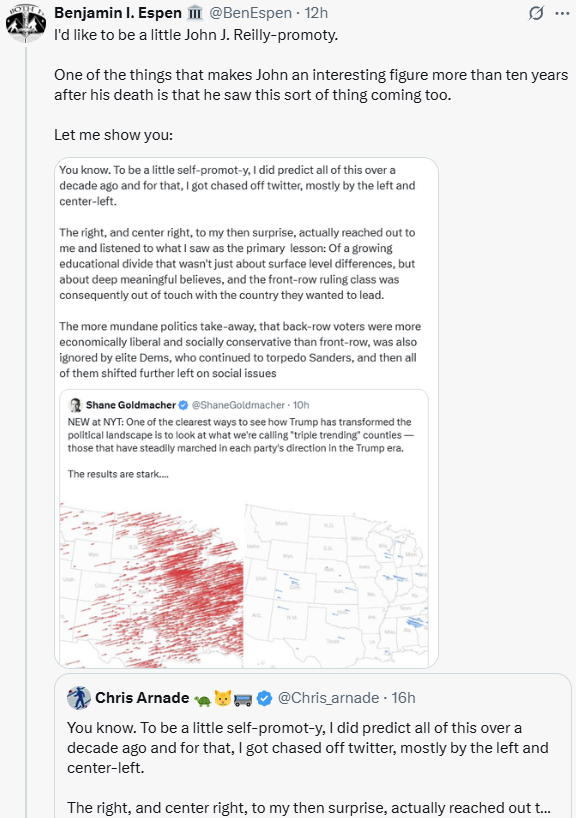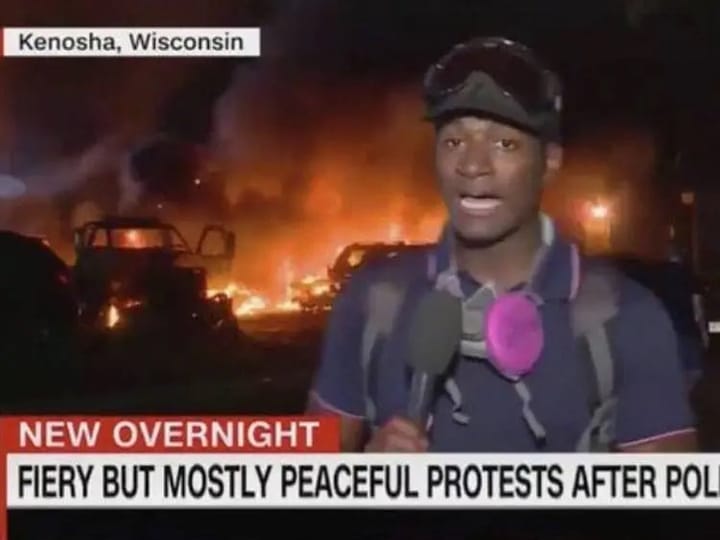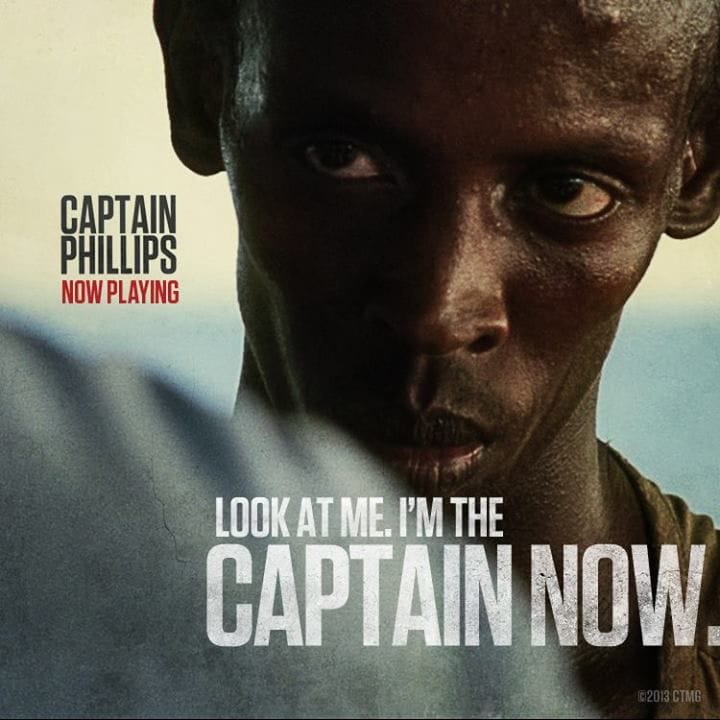The Long View: World War Z

World War Z remains one of my favorite books. I liked Brooks’ device of an oral history, and I enjoyed the wide variety of characters we meet through the “interviews”. As with so much of my favorite fiction, the characters seem like real people you could meet somewhere, or maybe have met somewhere, sometime.
I also enjoyed how the book is a covert paean to American greatness, positing a challenge to which we moderns can rise to meet, like unto our grandfathers. While technological mastery is a part of the final victory, organizational mastery is even more important. Some of the most lovingly crafted sections of the book are the descriptions of how the economy was put on a war footing using the techniques of Germany and Great Britain in the Great War.
The Brad Pitt movie version of World War Z was enjoyable, but for me, not nearly as good as this book. They didn’t even use any of the best scenes that John Reilly described in his review. Ah well.
World War Z:
An Oral History of the Zombie War
By Max Brooks
Crown Publishers, 2006
342 Pages, US$24.95
ISBN 0-307-34660-9
Clausewitz posited the concept of "pure war" simply as a theoretical boundary to military activity. It could never be achieved in reality, he thought, because it would mean annihilation for its own sake, an absence of politics either within or between the belligerents. No such enemy was imaginable. At any rate, no such enemy was imagined until Max Brooks wrote World War Z, a wonderfully inventive and fast-paced pseudo-history of a war that almost ends the human race. What we have here is a genuinely new idea in imaginative fiction: The Pure Enemy.
That's not to say that carnivorously inclined zombies are new. They had been shambling across movie screens and the pages of fiction even before George Romero's Night of the Living Dead (1968). Nonetheless, they have rarely received anything like the lovingly detailed treatment that vampires or even werewolves have enjoyed. Brooks (son of Mel, by the way) has written an earlier book, The Zombie Survival Guide, that fleshes out the subject. For the purposes of World War Z, however, there is little we really need to know:
Zombies have no memories, no language, no culture, no lairs. The invariably fatal zombie virus is transmitted by bites or scratches. When the infected person dies of the disease, or for some other reason after they have been infected, the body quickly reanimates. It immediately seeks out the living to eat, or at least to consume: zombies can no more digest than they can breathe. They decay very slowly, especially the ones on the bottom of the sea, from which they sometimes emerge after walking remarkable distances. They can be killed (well, de-animated) only by destroying their brains. Individually, they are not formidable. The nearly fatal danger to the human race comes from their habit of swarming. They give off a low moan when they become aware of the presence of the living, thus alerting other zombies, who in turn alert other zombies, to join in the pursuit. By this means, the undead can form chains that encompass the former populations of whole cities, or indeed of continents.
That said, World War Z is worth reading not because of these tinkertoy nightmares, but because of the ingenious way in which the author projects a struggle comparable to the Second World War onto the lives of the grandchildren of the people who fought in that conflict. As the subtitle suggests, the book uses the device of the "oral history," brief interviews by a single reporter with people all around the world who had lived through a cataclysm that is supposed to have ended, more or less, about a decade before the interviews are conducted. Toward the end of the book, we get this reflection from an ordinary citizen that perhaps best expresses the author's ambitions toward generational drama:
"I wonder what future generations will say about us. My grandparents suffered through the Depression, World War II, then they came home to build the biggest middle class in human history. Lord knows they weren't perfect, but they sure came closest to the American dream. Then my parent's generation came along and fucked it all up---the baby boomers, the 'me' generation. And then you got us. Yeah, we stopped the zombie menace, but we're the ones who let it become a menace in the first place. At least, we're cleaning up our own mess, and maybe that's the best epitaph to hope for. 'Generation Z, they cleaned up their own mess.'"
Just how that mess came to be made is the burden of most of the interviews. The author makes rather direct parallels between the intelligence failures that preceded the attacks of September 11, 2001, and the far more serious failure of the world's major governments to react intelligently, or sometimes at all, to the reports they were receiving about re-animations. The outbreaks spread slowly, over many months, before civil order suddenly collapsed almost everywhere.
The virus was first known as "African Rabies." In reality, it originated in China, where the government had succeeded in covering up news of the initial outbreaks until it was too late. When confused accounts of the disease became public knowledge, panic was avoided for a while by the marketing of a wholly ineffective vaccine. (One of the interviews is with the entrepreneur responsible, apparently the Most Hated Man in the World, at the base in Antarctica he rents from the preoccupied Russian government.) Meanwhile, governments were increasingly unable to suppress the outbreaks that overran rural districts, neighborhoods, and finally major cities. In the United States, the government attempted to reassure the public by giving maximum publicity to the high-tech defense against the mobilized zombies of Manhattan. In the resulting Battle of Yonkers, the Army dissolved on television before an enemy that was not much troubled by anti-personnel weapons or even large explosions. That was the start of the Great Panic.
What makes World War Z so interesting is that there is no easy gimmick that overcomes the zombie threat at the last minute. Neither is there a collapse into post-apocalyptic anarchy, or even much survivalism. Rather, there is a manpower-intensive strategy of retreat to defensible regions, the mobilization of economic resources for a long war, and finally the retaking of undead territory with huge infantry armies of riflemen. In the United States, this meant that a nation that had shrunk to the West Coast and Hawaii had to deal with the 200-million zombies east of the Rocky Mountains. Worldwide, victory in this conflict meant that the number of member states in the United Nations General Assembly had been more than cut in half, and large parts of the world were still wholly in the hands of the dead.
The film rights to this book have long since been sold, so we may speculate about which elements of the book will make it into the screenplay. The most filmable incidents take place in the collapse-phase of the war. One feels sure that the film will include the Decameron-like reality show that is overthrown, not by the undead, but by its own audience. It also is very likely that we will see the teenage otaku realize that his parents are not coming home and his Internet access is down permanently; then we will follow him for a while as he rappels down the wall of his zombie-infested high-rise apartment building and sets out to acquire a samurai sword and a blind sensei. The defense of Windsor Castle (the queen refuses to retreat with her government to Scotland) may be worth a few scenes, especially with the suddenly useful medieval body-armor and pikes. One suspects, though, that the chief action of the film will focus on the Battle of Five Colleges, a self-organized defense by the students of a group of colleges in California that ensured the central part of the state would not become zombieland. For theme music, the author draws our attention to "Avalon" by Roxie Music.
The colleges, by the way, are members of the Claremont group, the great citadel of Straussianism. One hopes the screenwriters will have a faculty member remark that the equality among the zombies perfectly realizes the eschatology of Alexandre Kojève: spiteful, but true.
Finally, anyone contemporary with the time in which this book was written will note that it expresses the free-floating anxiety of the early 21st century. The term "War on Terror" may leave something to be desired as an expression of the strategic situation, but the term survives because the word "terror" has resonance.
Let us not overly psychologize the situation. Certainly there is a quite real jihadist threat to the West. It is associated with a cult of homicidal martyrdom: in effect, it is a death cult that is not quite as inhuman as the zombies but very nearly as morbid. However, the current anxiety does not have an obvious human source, as did the anxiety during the crisis of the Depression and World War II. Maybe the current flurry of books about demographic collapse is a product of the dread; maybe the dread is a sublimation of unarticulated anxiety about the collapse. In any case, World War Z works because the enemy is not an ordinary human enemy, as in a Tom Clancy novel about a hypothetical world war. It is about the Pure Enemy, whose face we have not yet seen.
Copyright © 2006 by John J. Reilly



Comments ()